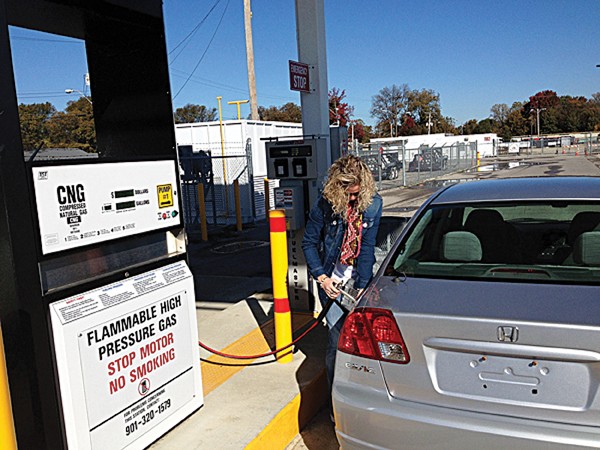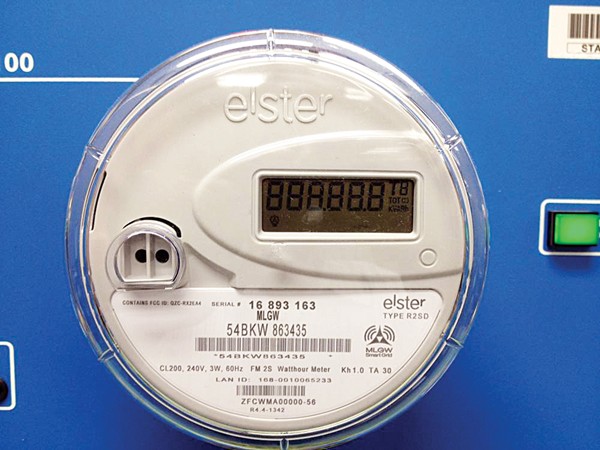Memphis Light, Gas and Water (MLGW) has big plans for 2015. And the Memphis City Council’s approval of the utility’s $1.7 billion budget proposal last week will enable many of those plans to come to fruition.
A big chunk of that budget — $27 million — will go toward implementing the next phase of smart meter installation across Shelby County. In addition to being used to purchase 50,000 electric, gas, and water smart meters, that money will fund a telecommunications system, which will collect information transmitted from smart meters, as well as a data management system to administer all data sent from smart meters.
With the compressed natural gas (CNG) market evolving, MLGW will take $2 million from its 2015 budget to construct a new CNG public access filling station. Made from methane stored at a high pressure, CNG is a less expensive alternative for fueling vehicles than gasoline. The upcoming facility will be the third that MLGW has constructed and is slated to be located on Lamar.
MLGW President Jerry Collins said the 2015 budget will enable the company to continue to provide customers with the lowest combined utility rates of any major city in the country.
“We do a survey every year for a typical wintertime bill for residential customers, and we survey cities all across the country. And as we look at those numbers, MLGW quite comfortably has the lowest combined utility rates for electric, gas, and water,” Collins said. “We have developed a pretty good gap between us and the other major cities.”

MLGW will build a new CNG station in 2015.
MLGW is in the process of replacing a 25-year-old computer system. Slated to be finished next year, Collins said the total project costs $50 million and that $18.5 million will be used from next year’s budget to complete it.
“It’s basically all of the back office-type applications for computer systems, which includes things like general ledger, inventory, accounting, work order management, engineering design … It touches many aspects of our operations,” Collins said. “But we’re getting rid of an antiquated system and putting in a new state-of-the-art system, which ought to really save us a lot of time as we do our transactions in the future.”
Other things on MLGW’s list of plans include replacing old transformers at numerous electric substations throughout Shelby County and improving the piping and water treatment system at its Davis Pumping Station.
There will also be 28 infrastructure employees added to MLGW’s gas division to help maintain gas distribution to local homes and businesses.
One thing that won’t be implemented by MLGW in 2015 is a 35-cent monthly water rate increase for residential customers. Last week, the city council voted against MLGW’s request to do so.
The utility company requested the increase to counterbalance losing its largest water customer, Cargill. In January, the food, agriculture, and industrial product company is closing its corn milling facility in Memphis. The facility accounted for about five percent of MLGW’s water sales.
Due to the rate increase not passing, Collins said MLGW would be a little further in the hole financially in 2015 than anticipated. But aside from that, Collins is excited about what the new budget will bring for MLGW.
“There’s lots of good news,” Collins said. “We will continue to try to make sure that our customers get the best possible service at the lowest possible price. And we want to make sure that we have the cheapest utilities in the whole country.”
